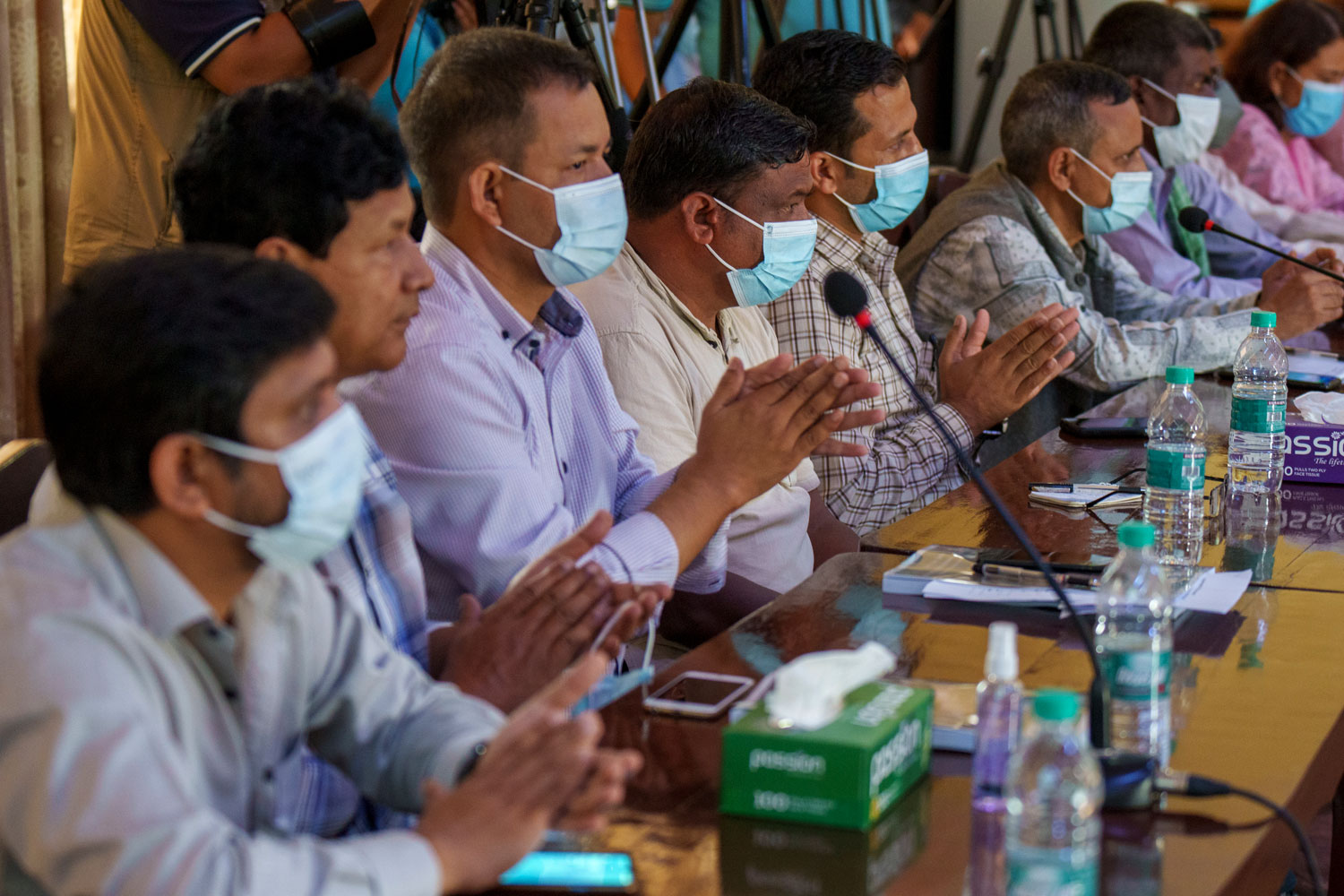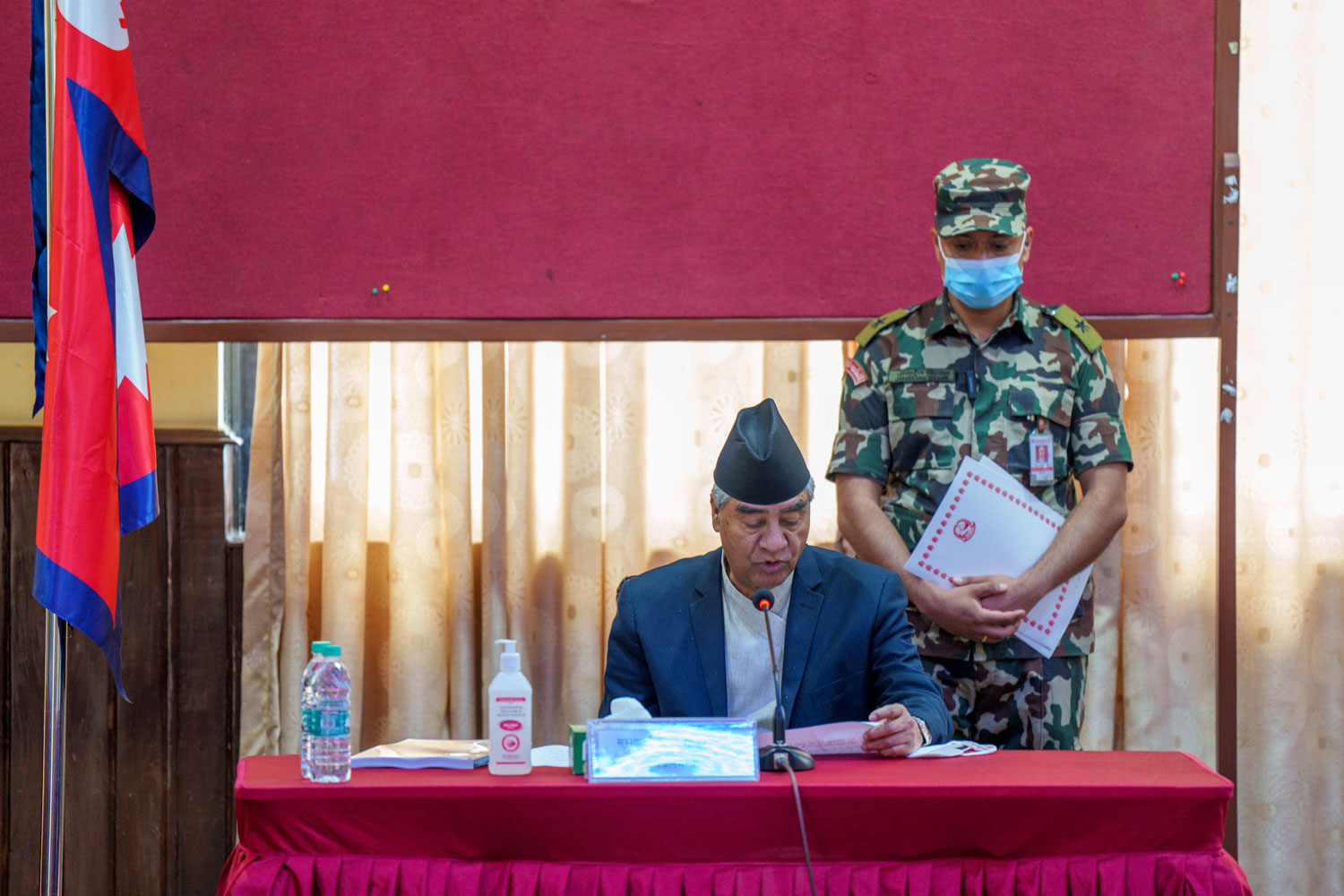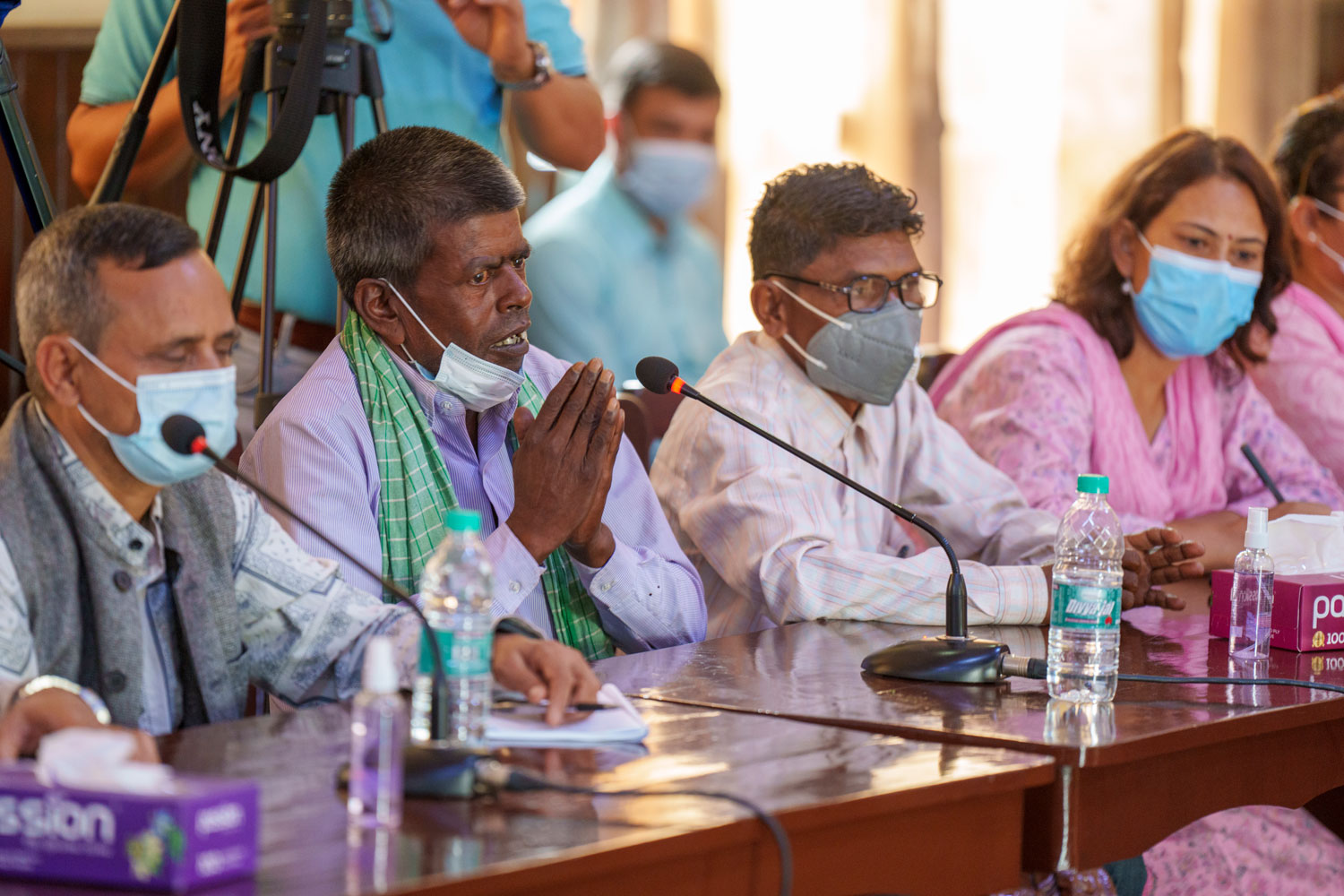by Jiyam Shrestha, Nepal Program Advisor, Freedom Fund
I write to you from Kathmandu with hope and gratitude at the end of a momentous week, one that saw the Government of Nepal declare the freedom of Harawa-Charawa agricultural bonded labourers for the first time.
The Freedom Fund’s program in south-eastern Nepal, where I work as an adviser, has long supported frontline organisations and leaders in their campaign to free generations who have been trapped in poverty through a system of modern slavery known as Harawa-Charawa. It targets marginalised Dalit communities, who take on high-interest debts which are then passed from generation to generation, with little possibility of families escaping the cycle. Once in debt, people are forced to work on their lenders’ land as tillers, cattle herders or domestic servants for well below minimum wage. They face physical abuse, demands for immediate and full repayment of loans, and threats of expulsion from their homes and the land they are share-cropping.
The Freedom Fund and our local partners supported survivors to build a democratically elected movement, the Harawa-Charawa Network, and invested in their capacity to advocate for their constituents and influence power-holders. Years of hard work by the affected communities suddenly delivered results when the Harawa-Charawa Network’s leaders were called to our Prime Minister’s office on Monday for a historic announcement.
Although bonded labour was officially abolished here in Nepal in 2002, the Harawa-Charawa, a community of more than 120,000 people, were not named as a group eligible for government rehabilitation programs which were open to other groups such as the Kamaiya and Haliya. At Monday’s meeting our Prime Minister Sher Bahadur Deuba addressed community leaders directly. He clarified that all Harawa-Charawa must now be free from loans, recognised explicitly in government acts to prohibit labour exploitation, and gain access to rehabilitation programs to ensure the socio-economic prosperity and dignity of liberated families.
I have no doubt that a long and arduous journey lies ahead until the Harawa-Charawa people fully achieve equality and prosperity but one thing that Mr Dashan Mandal, Chairperson of the Harawa-Charawa Network, said in response to the Prime Minister’s declaration really stood out for me: “There is no joy without freedom.”
That is why I am filled with hope, because freedom means that the Harawa-Charawa community are now on a path to a different future in which they can see joy. And I am filled with gratitude to all of the Freedom Fund’s supporters for believing in our mission and our work as we look forward to continuing to support the Harawa-Charawa on their journey to social and economic freedom.
Read the Freedom Fund press release here.
—

Jiyam Shrestha (second from right) and Freedom Fund partner organisation staff applaud after Prime Minister Sher Bahadhur Deuba announces the liberation of the Harawa Charawa community during a program organised to mark 22nd year of the declaration of the abolishment of the Kamaiya (bonded labour) practice at a hall in the prime minister’s residence in Kathmandu, Nepal, Monday, July 18, 2022. (Photo: Niranjan Shrestha / Freedom Fund)

Prime Minister Sher Bahadhur Deuba announces the liberation of the Harawa Charawa community during a program organised to mark 22nd year of the declaration of the abolishment of the Kamaiya (bonded labour) practice at a hall in the prime minister’s residence in Kathmandu, Nepal, Monday, July 18, 2022. (Photo: Niranjan Shrestha / Freedom Fund)

Dashan Mandal, representative of National Network of Harawa Charuwa gives his speech before prime Minister Sher Bahadhur Deuba announces the liberation of the Harawa Charawa community during a program organised to mark 22nd year of the declaration of the abolishment of the Kamaiya (bonded labour) practice at a hall in prime minister residence in Kathmandu, Nepal, Monday, July 18, 2022. (Photo: Niranjan Shrestha / Freedom Fund)


